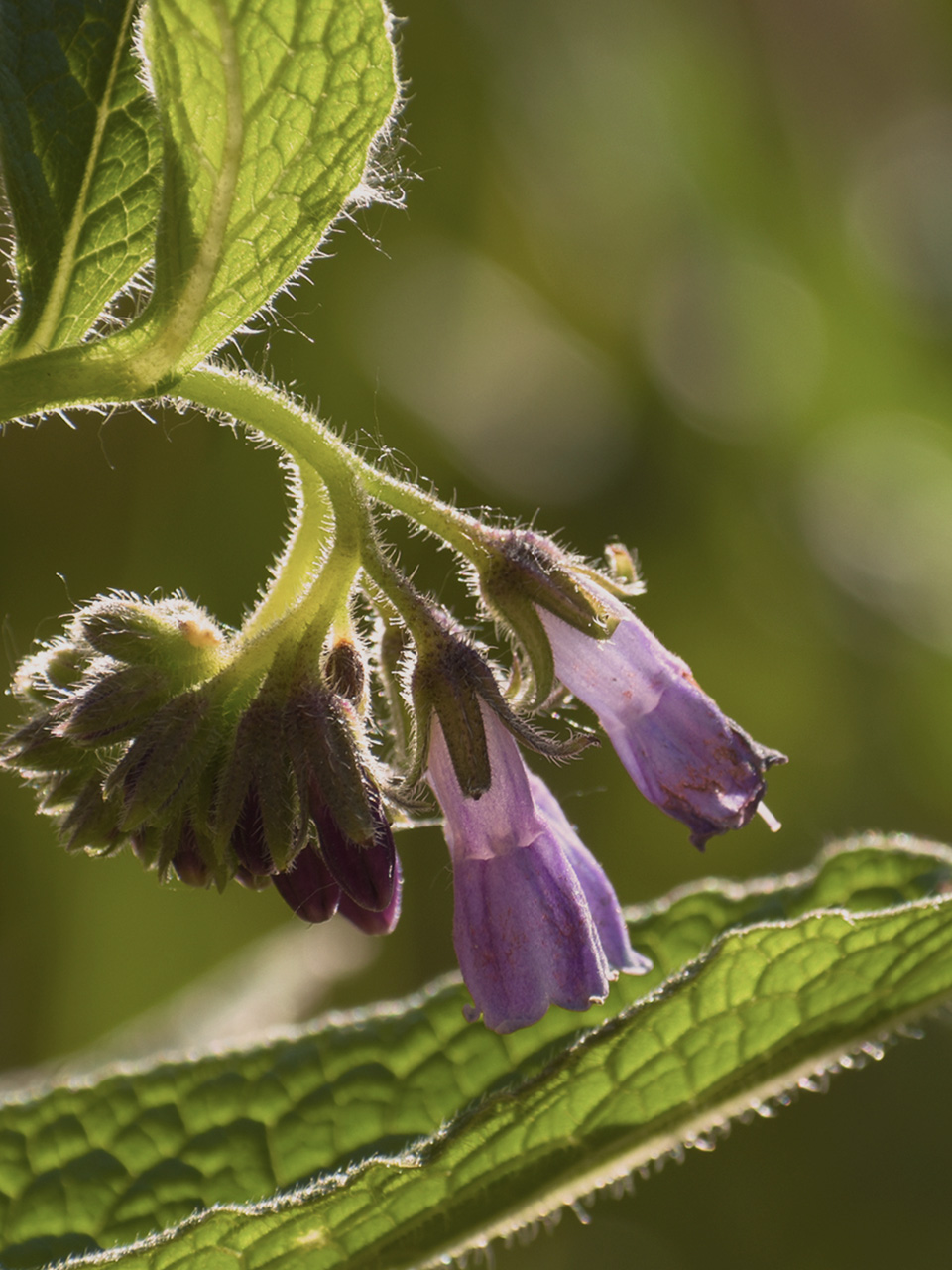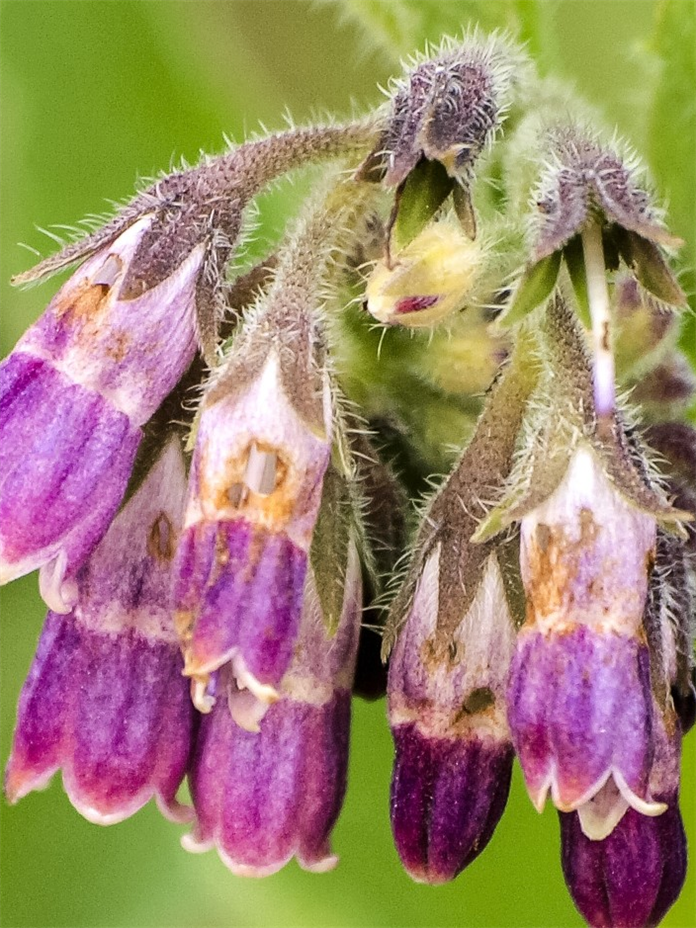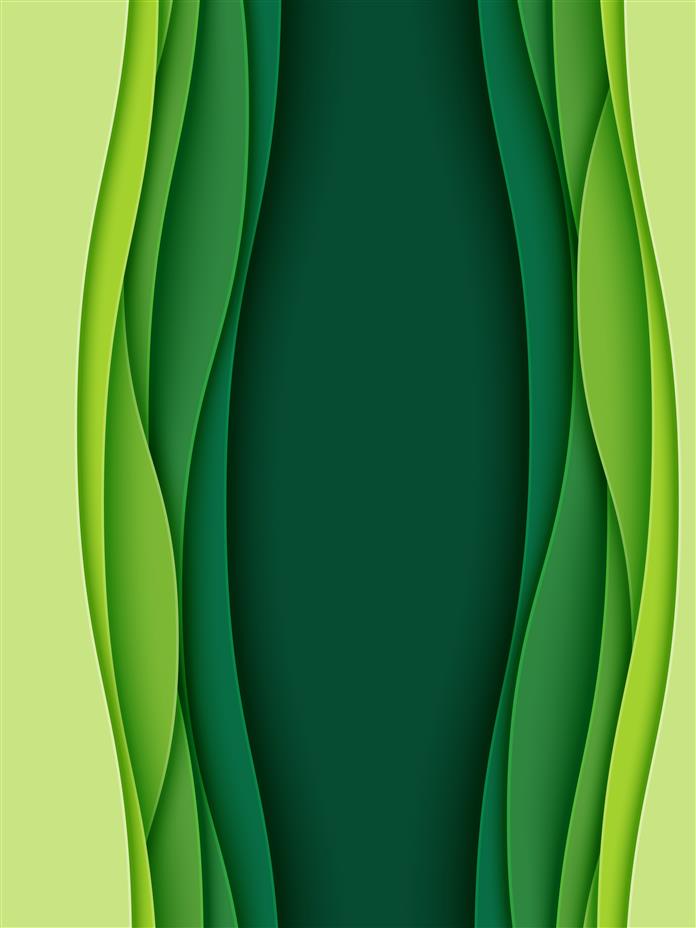Comfrey is a herb which is used as a herbal medicine, and serves as a good topical product for various body ailments. It is also considered to be an important herb in organic gardening, and is used as a fertilizer. Read more information about the herb.

Tap to Read ➤
Comfrey Tea
Saptakee Sengupta


Comfrey is a herb which is used as a herbal medicine, and serves as a good topical product for various body ailments. It is also considered to be an important herb in organic gardening, and is used as a fertilizer. Read more information about the herb.
Comfrey herb has a black, turnip-like root system, with broad hairy leaves, and bell-shaped flowers that could be pink, light purple, white, or cream in color. The scientific name of the herb is Symphytum officinale, and it belongs to the herb family Boraginaceae. This plant is native to Europe.

The ancient Greeks and Romans used to boil the leaves in water to heal broken bones. Tea made from this herb has immense health benefits, and is accepted worldwide as a herbal medicine.

Recipe
The leaves and roots are mainly used for preparing this tea. The standard procedure used for the preparation of the tea, is to boil 2 teaspoons of dried infusion material in 2 cups of water for 5 minutes. You can also pour boiling water in the herb, allow it to steep for 10 minutes and strain it.

If you use the fresh herb, ¼th cup would be the exact measurement. Its bark and seeds can also be utilized for the herbal drink. The quantity should be 1 teaspoon of bark and 2 teaspoons of seed in 2 cups of boiling water. You can also add sweetener, honey, or lemon juice for a pleasing taste.

For using this herb as a fertilizer, you can make a herbal infusion by placing a handful of its leaves in a container. Pour sufficient water to cover the leaves. Cover the container and let it steep for 4 weeks.

Remove the leaves after that, and squeeze out as much juice as possible. Mix 1/3 cup of this juice in one gallon of water. This infusion works well as a manure mulch, compost activator, and liquid fertilizer.

Benefits

Constituents of the Tea
The medicinal value of the tea is due to the presence of a large number of pharmacologically active compounds such as rosmarinic acid, allantoin, symphytine, echimidine, tannins, lasiocarpine, pyrrolizidine alkaloids, phytosterols, phenolic compounds, etc. It is also rich in vitamin B12, phosphorous, calcium, nitrogen, and potassium.

All these elements have their own medicinal properties that benefit the body in some or the other way. Tannins have astringent properties, while allantoin is the most important compound that promotes tissue regeneration and wound healing. Essential fatty acids and symphytum are active compounds that help in controlling cholesterol levels and treating ulcers.

Medicinal Uses
This tea is beneficial for almost every part of our body.
► It can be beneficial in treatment of health disorders like sprains, arthritis, gastric ulcers, bronchitis, broken bones, asthma, athlete's foot, etc.
► It might help cure burns, acne, rashes, thereby promoting healthy skin. The mucilage content soothes and moisturizes the skin.
► It can be beneficial in treatment of health disorders like sprains, arthritis, gastric ulcers, bronchitis, broken bones, asthma, athlete's foot, etc.
► It might help cure burns, acne, rashes, thereby promoting healthy skin. The mucilage content soothes and moisturizes the skin.

► The herb maintains calcium-phosphorous balance, and secretes the hormone pepsin that helps in digestion.
► It soothes bee stings, spider bites, and staph infections affecting the skin.
► The tea or juice of this herb is believed to be a good remedy for hemorrhoids, diarrhea, stomach, and intestinal disorders.
► It soothes bee stings, spider bites, and staph infections affecting the skin.
► The tea or juice of this herb is believed to be a good remedy for hemorrhoids, diarrhea, stomach, and intestinal disorders.

Side Effects
Oral consumption of comfrey products or tea has been restricted as per FDA guidelines. Recently, studies of the toxic effects of pyrrolizidine alkaloids present in the herb have led to doubts on the safety of its internal consumption. It is said that due to the presence of poisonous chemicals, its oral intake could cause liver damage, lung damage, or cancer.

However, it is believed to be safe for topical application. It is also important to remember that the poisonous chemicals could pass through the skin. The absorption could happen when applied on broken skin, or when large amounts are applied. Hence, it is considered to be safe when applied on unbroken skin and in small quantities for less than 10 days.

Make sure that you clean the wound properly before applying the products. Using it for a longer period should be strictly avoided. The tea is also not recommended for people under dietary potassium restrictions. This tea should be strictly avoided during pregnancy.

Research studies show that comfrey and its products are mostly used for external application. If you wish to consume the drink, it is very important to seek the advice of the concerned doctor in order to avoid further complications.

Disclaimer: This is for informative purposes only and does not in any way attempt to replace the advice offered by an expert on the subject.